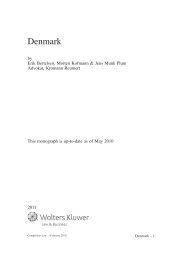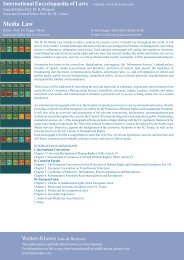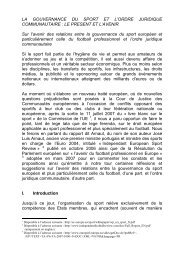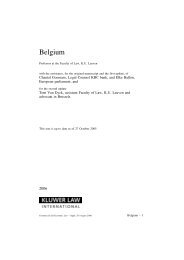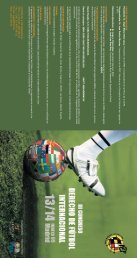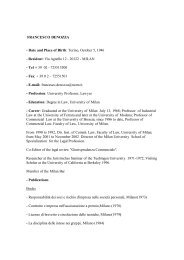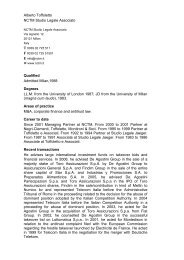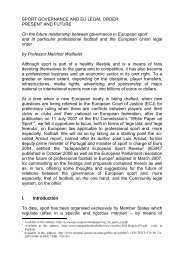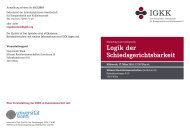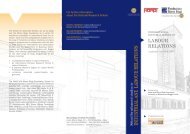USA - International Encyclopaedia of Laws
USA - International Encyclopaedia of Laws
USA - International Encyclopaedia of Laws
You also want an ePaper? Increase the reach of your titles
YUMPU automatically turns print PDFs into web optimized ePapers that Google loves.
The Legislature, Part II, Ch. 3 146–149146. Familiar examples <strong>of</strong> American state constitutional limitations on thelegislature include requirements that a bill contain a title disclosing its contentand include only matters on a ‘single subject’; that all bills be referred tocommittee; that the vote on a bill be reflected in the legislature’s journal; thatno bill be altered during its passage through either house so as to change itsoriginal purpose; and that appropriations bills contain provisions on no othersubject. These procedural restrictions must be distinguished from the commonsubstantive limits on state legislation, such as those prohibiting statutes limitingwrongful death recoveries or mandating a certain type <strong>of</strong> civil service system,and from the general limits contained in state bills <strong>of</strong> rights.147. The limitations on state legislative procedure survived the wave <strong>of</strong>state constitutional revision that occurred during the middle <strong>of</strong> the 20th century.Therefore, because these limits have, in effect, been readopted in contemporarystate constitutions, they reflect policies relating to the nature <strong>of</strong> the deliberativeprocess in state legislatures. Further, they represent an important limit onlegislative authority and illustrate the lasting result <strong>of</strong> earlier public disillusionmentwith legislative abuses.148. Although the procedural limits outlined above are usually discussedas if they were all <strong>of</strong> the same quality, there are important differences. Someprovisions require the legislature to act affirmatively, while others prohibitcertain acts. A violation <strong>of</strong> certain restrictions, such as title and single-subjectprovisions, can be seen from examining the text <strong>of</strong> the final legislative enactment.By contrast, a violation <strong>of</strong> other restrictions, such as the prohibition <strong>of</strong>a bill being altered on its passage through either house so as to change itsoriginal purpose, will not be reflected on the face <strong>of</strong> the final legislativeenactment. Consequently, a search for this type <strong>of</strong> violation requires anexamination <strong>of</strong> the legislative steps leading up to the enactment.149. State courts have developed a surprisingly wide range <strong>of</strong> approachesto enforcing restrictions on legislative procedure under circumstances where anact on its face does not reflect a violation <strong>of</strong> procedural limitations. Some courtswill not ‘go behind’ an enrolled bill, duly signed by legislative <strong>of</strong>ficers, toconsider evidence <strong>of</strong> violation <strong>of</strong> legislative procedure provisions in stateconstitutions. Other courts will consider only the <strong>of</strong>ficial legislative journals butnot other evidence. Still other courts will consider any relevant evidence <strong>of</strong> suchstate constitutional violations. Even within single jurisdictions, one can detectinconsistent doctrines and a lack <strong>of</strong> continuity over time. These widely varyingjudicial doctrines reflect what are essentially political decisions, made in thecontext <strong>of</strong> adjudicating actual controversies, concerning the extent <strong>of</strong> judicialenforcement <strong>of</strong> state constitutional norms. On rare occasions, these proceduralprovisions may result in court decisions invalidating a statute. More importantly,such restrictions make the state legislative process significantly different from,and more rigidly structured than, the federal congressional legislative process.Constitutional Law – Suppl. 34 (October 1999) <strong>USA</strong> (Sub-national) – 61



